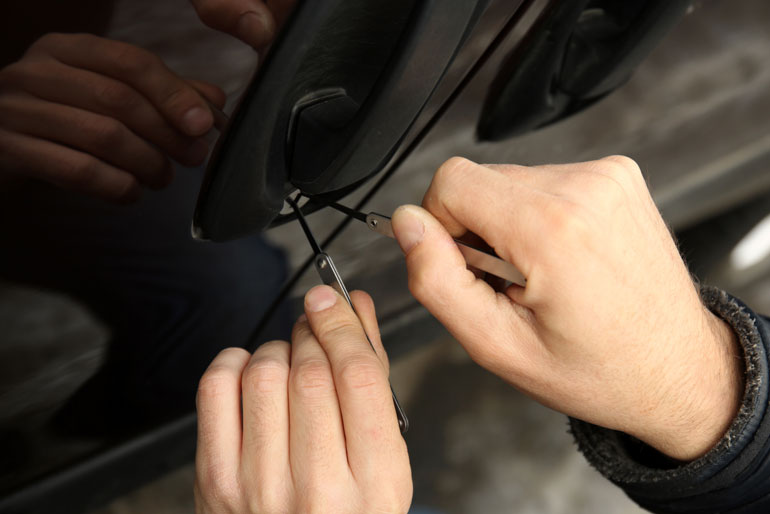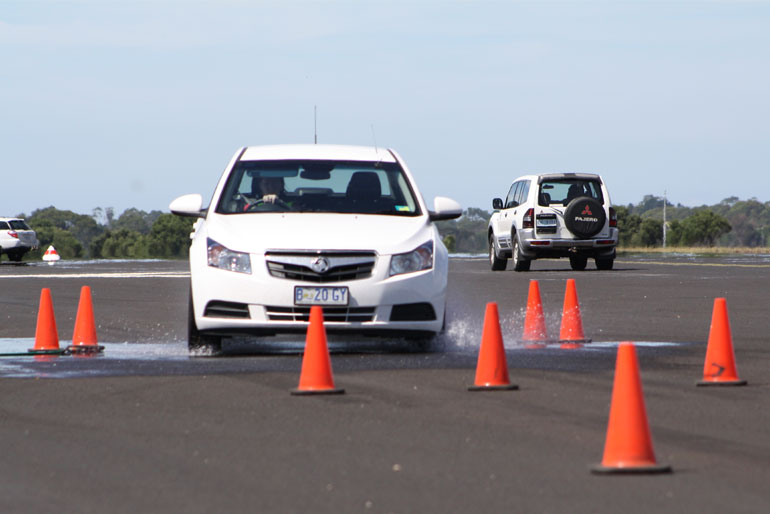Closed course driving, also known as track driving or performance driving, is a type of driving that takes place on a private track rather than on public roads. While it may seem counterintuitive, participating in closed course driving is a practical way to actually improve skill and increase safety when driving on public roads. In this blog, we’ll explore the safety benefits of closed course driving and why it’s worth considering for both experienced and novice drivers.
Hone Your Driving Skills and Learn How to React
One of the primary benefits of closed course driving is the opportunity to learn and practice advanced driving techniques in a safe environment. On a closed track, drivers have the freedom to experiment with car handling and learn how to react to different driving scenarios without the added risk of colliding with other cars and pedestrians. This can be particularly useful for drivers who want to improve their skills in areas such as cornering, braking, and emergency maneuvering without risking a major car accident. A closed driving course is the safest place to make mistakes. Tracks are designed to reduce the risk of driver danger; a driving error is far less likely to end in a collision as it might on public roads.
Understand How Your Car Handles in Different Situations
Closed course driving can also help drivers to better understand their vehicles and how they handle in different conditions. By pushing their cars to the limit in a controlled environment, drivers can learn more about their car’s capabilities and how to get the most out of it in a variety of situations. Each car handles a little differently, so it’s important for drivers to understand the nuances of their own vehicle. This can be especially beneficial for drivers of high-performance or specialty vehicles, as it allows them to fully understand and appreciate the capabilities of their cars with minimal risk for an accident.
Build Confidence Behind the Wheel
In addition to learning advanced techniques, closed course driving also allows drivers to become more comfortable and confident behind the wheel. Practicing these maneuvers help drivers understand how to handle a vehicle in extreme conditions and primes their skills for emergency situations. This can translate to safer driving on public roads, as drivers who are more confident and more practiced are less likely to make mistakes and are more prepared to perform evasive maneuvers to avoid accidents.
Another benefit of closed course driving is the opportunity to experience the thrill of driving at high speeds in a safe and legal environment. While it’s important to always follow the speed limit and drive safely on public roads, closed course driving provides a way for drivers to satisfy their need for speed without putting themselves or others at risk. Drivers can familiarize themselves with their car’s acceleration and braking performance which can be a difference maker in avoiding a road collision.
It’s worth noting that closed course driving is not a replacement for traditional driver’s education or advanced driver safety courses. It’s important for all drivers to understand and follow the rules of the road and to always drive safely and responsibly. However, closed course driving can be a valuable supplement to traditional driver’s education, providing drivers with the opportunity to improve their skills and become more confident behind the wheel.
How to Find a Closed Track Event
There are many opportunities to drive on a closed course. The best place to start is by researching a private road course near you. These tracks typically offer open track days where anyone can sign up and use their facilities. Even if there is no course located near you, you may still participate in an autocross event. The SCCA is known for their autocross events which are typically held in empty parking lots where a track is set up via road cones. Drivers can elect to have an instructor on board to aid in teaching. Regardless of the track, most track days are organized by car clubs and the price varies depending on the club and track. Expect to pay at least $200 for a day of use.
Frequently Asked Questions About Track Days
- Do you need a special car to participate in a track day?
No, any road going car can be used at a track day so long as it passes the events’ inspection. Each event may have different inspection standards so check with the track or event organizer to be sure if your car qualifies.
- What should I bring to a track day?
You should bring a valid driver’s license, a helmet, and closed-toe shoes. Some tracks may have helmets available to rent, double check with the organizer to be sure.
- Do I have to have experience to participate in a track day?
No, all skill and experience levels are generally welcome. Track days are for learning so don’t be afraid to participate if you have no experience.
- Will my insurance cover an accident on the track?
As previously mentioned, tracks are set up to minimize the risk of a collision. However, accidents still happen. Most insurance companies don’t cover accidents on the track. So if your insurance finds out your accident happened on a private track, you may have to cover the costs out of pocket.
Track Days Improve Driver Skill and Reduce Driver Mistakes
In conclusion, closed course driving can be a valuable tool for improving driving skills and increasing road safety. It provides drivers with the opportunity to learn advanced techniques, become more comfortable and confident behind the wheel, understand their vehicles better, and experience the thrill of high-speed driving in a safe and legal environment. These intangibles translate to a more prepared driver and the skills to properly perform evasive maneuvers to avoid a car accident. According to the attorneys at Dormer Harpring, LLC., driver mistakes are one of the most common causes of car accidents. Honing your skills at the track can reduce mistakes and decrease the likelihood of an accident. While it’s important to always follow the rules of the road and drive responsibly, closed course driving can be a valuable addition to traditional driving education.







